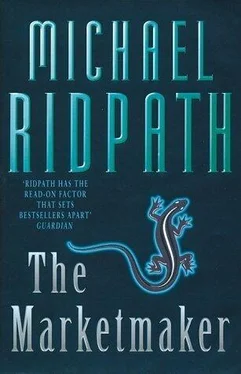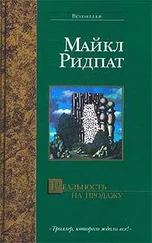‘Be careful,’ said Isabel. ‘You should always treat a caipirinha with respect.’
Luís chuckled.
‘It must be hard to take London after this,’ I said to Isabel, with another look out at the bay.
She laughed. ‘It’s true. As a Brazilian, you need courage to get through a London winter.’
‘Isabel tells me you work with her at Dekker Ward,’ said Luís.
‘That’s right. I have nearly one week’s experience in banking. But you’re a banker yourself, aren’t you?’
‘Yes. My family were landowners in the state of São Paulo. Through the generations they have shown a consistent ability to turn a large fortune into a smaller one. I suppose you could say I’ve changed that record.’ He glanced at Isabel. ‘In fact, it looks as if banking is now firmly in the blood.’
Isabel flushed. ‘Papai, I enjoy it, OK? I have a good job, I do it well.’
‘I’m sure you do,’ said Luís, with just the barest hint of condescension. Isabel noticed it and scowled. ‘Isabel tells me you used to teach Russian.’
‘That’s right. At the School of Russian Studies in London.’
‘Ah, I wish I could speak the language. I have read many Russian novels, all the greats, but I think it would be wonderful to read them in the original.’
‘It is,’ I said. ‘Russian prose is a marvellous thing. It seems almost like poetry. The sounds, the resonance, the nuances which writers like Tolstoy and Dostoevsky can achieve are extraordinary. Beautiful.’
‘And who is your favourite?’
‘Oh, Pushkin, undoubtedly, for just that reason. He does things with the language that no one has managed before or since. And he tells a good story.’
‘I often think Brazil is a little like Russia,’ said Luís.
‘Really?’
‘Yes. Both countries are vast. Both peoples seem to live for the present. We’re both used to poverty, corruption, great potential that is always just beyond our reach. You know, they say about Brazil that it is the country of the future and it always will be.’ He chuckled. ‘But we don’t give up. We have a drink, a dance, we enjoy ourselves, and perhaps the next day we die.’
I thought about what he had said. He had described exactly the strange mixture of exuberant good humour and melancholy that had attracted me to Russian literature in the first place. ‘Perhaps you’re right. I’m afraid I don’t know enough about Brazil. But I suspect the climate’s better.’
Luís laughed. ‘That’s true. It makes enjoying life easier.’
‘It’s a fascinating country. I’d love to find out more about it.’
Luís took my arm. ‘Do you know Tolstoy’s story, “Master and Man”?’
I smiled. ‘I was teaching it just three weeks ago.’
‘That could apply perfectly to Brazil.’
‘What’s that, Papai?’ Isabel asked.
‘You tell her,’ Luís said to me.
‘A nobleman and his servant are stranded in a snowstorm. The nobleman rides off to safety with their only horse, leaving his servant to walk. After a while the nobleman is thrown off his horse. As he trudges through the snow, he reflects on the uselessness of his life, and probably his death, spent alone and in selfishness. So he returns to find his servant lying freezing in the snow. The nobleman spreads himself on the servant like a cloak. In the morning, when the storm has blown over, they are discovered. The servant survives, but the nobleman is dead.’
Isabel’s large dark eyes were watching me, following every word. ‘That’s beautiful.’
‘It expressed Tolstoy’s beliefs in the obligations of the nobility,’ I said.
‘Beliefs that we would do well to heed in Brazil,’ said Luís.
‘Unfortunately not many of Tolstoy’s contemporaries took much notice either. Forty years later there was a revolution.’
‘We won’t have another revolution here. Just anarchy, violence and poverty.’
‘Has Isabel told you what we’re doing here?’ I asked.
Isabel looked embarrassed.
‘My daughter doesn’t like to talk to me much about her work,’ he said. ‘My bank and hers often find ourselves rivals, so it’s probably best that way.’
I wasn’t sure whether I was about to give away a trade secret, so I glanced at Isabel. She shrugged. So I told him about the favela deal. He listened intently, glancing occasionally at Isabel who avoided his eyes.
There was silence when I had finished. Finally, he asked a question. ‘When do you say the bond issue will be launched?’
‘In two weeks, we hope,’ answered Isabel.
‘Well, have your people give me a call. I will make sure that the bank buys some.’
‘But, Papai, you never deal with Dekker!’
‘I know. But this is different. I think it’s important for Banco Horizonte to support initiatives like this.’
Isabel’s mouth hung open.
‘Don’t look so shocked, my darling.’
‘Papai, you’re not doing this just to humour me, are you?’
‘No, of course not. It’s a good idea. It deserves support. I’m glad to see you are doing so well. Ah, here’s lunch.’
We sat down as a maid brought us some steak and salad. The meat was tender, with a much stronger taste than its British counterpart. The salad included all kinds of vegetables I had never seen before. It looked very good.
There was silence as we set about our food. Then Luís broke it. ‘Isabel, I’ve been thinking. Would you like to come and work at the bank?’
Isabel looked at me anxiously, then at her father. ‘Doing what, exactly?’
‘Oh, I don’t know, I’m sure we could find you something. You have lots of experience now. You could be very useful doing lots of things.’
‘Papai—’
‘It would be good for you. You could come back to Rio. Settle down—’
‘Papai!’ Isabel glanced quickly at me and then glared at her father. She launched into a torrent of angry Portuguese. Luís tried to protest, but was cut off. Finally, they both lapsed into silence.
I cut my steak slowly and with great concentration. Luís began to speak. ‘I must apologize for my daughter—’
‘Don’t worry about it,’ I said. ‘There’s no point in having a family if you can’t have a lively discussion every now and then. I was wondering,’ I continued quickly, ‘would it be possible to see a favela ?’
I said it for something to say, a way of breaking the tension. And I was intrigued by these communities that I had heard so much about, but had not yet actually seen.
‘You could take him to see Cordelia,’ said Luís.
Isabel was still sulking, but she stirred herself. ‘Yes, we could do that if you want.’
I coughed. ‘Good,’ I said. Then, ‘Who’s Cordelia?’
‘Oh, Cordelia’s my sister. She helps run a shelter for street children in one of the favelas. She should be working there this afternoon. We can go after lunch.’
‘OK,’ I said.
‘By the way, Cordelia has some news,’ said Luís to Isabel.
Isabel thought a moment, and then looked at her father. ‘She’s not pregnant, is she?’ The corners of her mouth twitched upwards.
Luís shrugged, but couldn’t suppress a smile. ‘You’ll have to ask her yourself.’
Isabel grinned broadly. ‘That’s wonderful news! She must be so happy. You must be so happy. I think I can see you as a grandfather.’
Luís beamed. It was clearly a role he was relishing.
‘Well, we definitely have to see her this afternoon,’ Isabel said to me.
‘I don’t want to interfere in anything. Perhaps you should go by yourself.’
‘No. I’d like you to meet her,’ said Isabel. This caught me a little by surprise. Why should she care whether I met her sister? ‘I mean, it would be good for you to see the shelter.’
Читать дальше












